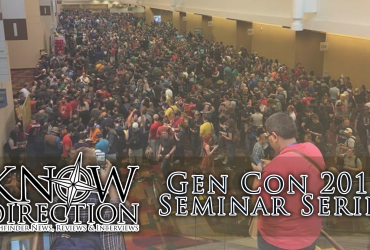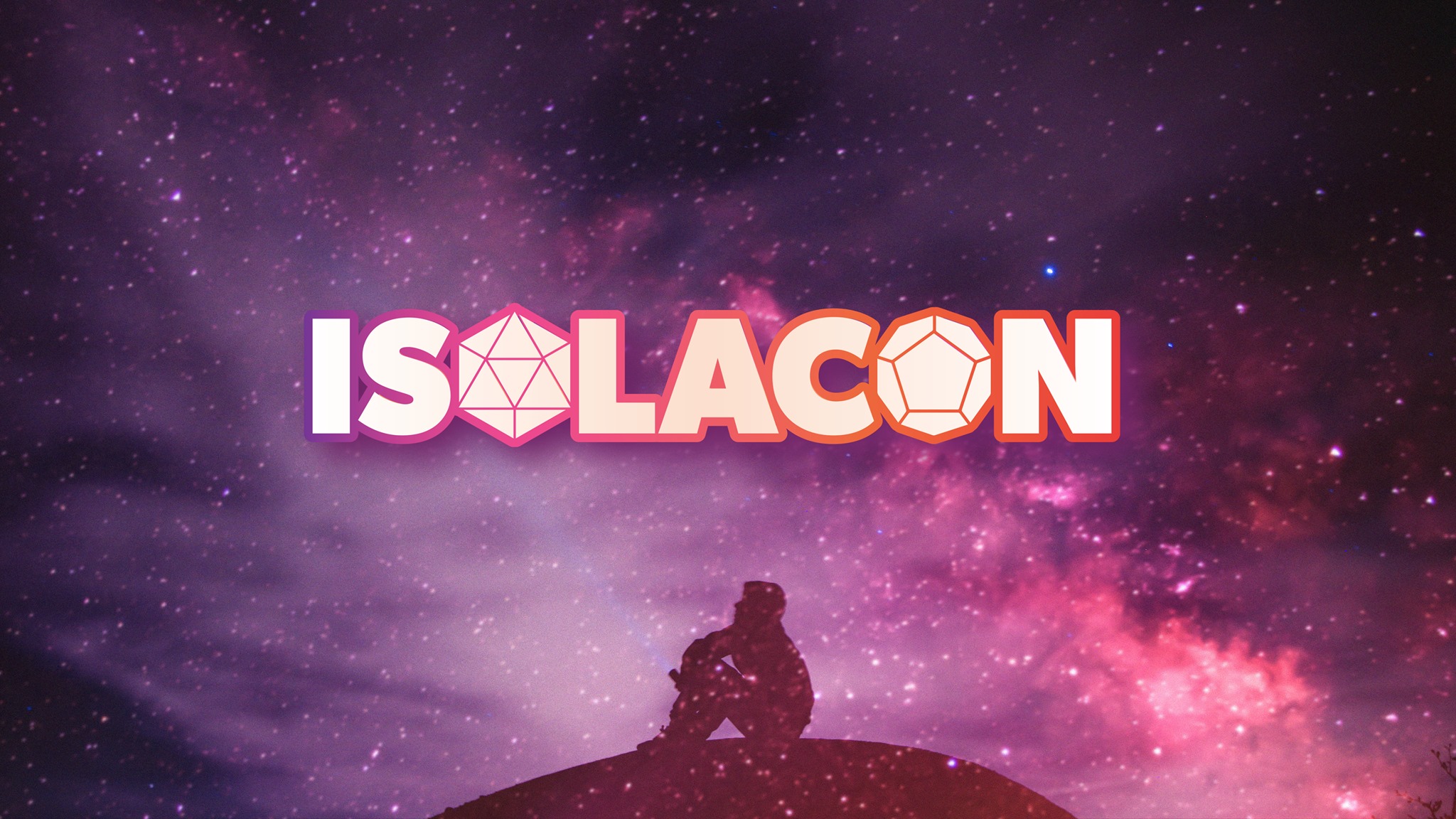We’re all gamers here, we’ve bought products to use at our gaming tables. Sometimes we read a book and think “OMG this is AMAZING!” Sometimes we read a book and think “Huh, I am never going to use this, how disappointing.” Sometimes we rate said product and leave a review, sometimes we don’t. Today we’re going to talk about leaving useful and effective reviews of products. We’ll be looking at real live reviews, with links and names attached, if you see a review you left, I hope you learn something.
How gaming material is made
First we’re going to look at how an idea makes its way to your gaming bookshelf. While the process may vary from publisher to publisher, there’s a pretty standard pathway.
Someone has an idea for a gaming book. If it’s a publisher, they contract a writer (either in house or freelance). If it’s a freelancer and they have a publisher, they pitch their idea until someone agrees to publish it (we’re assuming it’s a good idea). Once a writer and publisher are chosen, the writer is given or develops an outline for the product which the writer and someone with the publisher (usually the developer) discuss.
For a freelancer who is contracted for an adventure, such as an AP adventure or a PFS scenario, they are usually presented with a general overview of the story and an outline, which may contain very specific elements that must be included in the adventure. These elements may include a location, a monster, a type of magic item, a plotline thread, or even a specific stylistic theme or element. For example, I knew that my PFS scenario was going to include important storyline elements regarding the Master of Spells Sorrina Westyr, it would take place in the Crystal Womb, and that I had to create a Shaitan NPC for future use. There was a lot more hand-holding with my scenario because I was new to the process.
After discussing the project, the freelancer goes to the word mines and writes. At a designated time a milestone document is turned over, which gives the developer an idea of where the project stands and if anything needs to be tweaked. This is also about the time the art order is turned over. The project may be course corrected and the writer goes back to the word mines.
Once the final turnover happens the developer takes the final copy and works it up. Sometimes an encounter isn’t quite what they envisioned or something needs to be changed as a result of any number of things happening. While I would love to take complete credit for my Paizo publications, that would be hubristric, I am eternally grateful for the work of Crystal Frasier and John Compton, who made me look like a competent game designer.
At some point an editor checks the document to make sure it has complete sentences and whatnot. Then the pages get formatted and art is added. This sometimes requires tinkering with lengths and stuff has to be changed. By the time a finished product gets from someone’s head as an idea to your bookshelf, anywhere from 1 to 8 or more people have worked on it.
Why write reviews?
Reviews are really important for two reasons –
- They let the publishers know what you like or dislike about a product specifically and gaming in general.
- They let other consumers know what to expect from a specific product.
We want to know what you like and dislike so we can make the best products for the largest audience. I promise you with all my soul that NO ONE goes into game design with the express desire to ruin your fun. It’s not like game publishing is incredibly lucrative, it is a labor of love. That doesn’t mean that every game designer has fun the same way you have fun gaming, though. There are lots of ways to have fun gaming, if there wasn’t, we’d only have one gaming system.
While there are one person publishers out there, it is unusual for one single person to be completely responsible for a product. This is important because more often than not, one person gets blamed when a consumer doesn’t like said product – the person whose name is on the front cover. Now I’m not encouraging anyone to send hate mail to an entire production crew, I’m frankly rather tired of seeing nasty personal attacking reviews, which is why I’ve chosen this topic. My goal is to remind or educate everyone that personally attacking authors of gaming materials (or any published works for that matter) is uncalled for, as you will shortly see.
On to the reviews
I crowdsourced some bad reviews and I’m going to tell you why they’re bad and how you can do better. I will attempt to avoid criticizing grammatical and spelling errors, but I will say this, if you can’t spell words correctly or use English grammar at a 4th grade level, I’m reading your review with more than a grain of salt.
- Written review doesn’t reflect rating
3 of 5 stars:
“Unlike the other two reviewers, I am not overly fond of this supplement. It only has a few templates in it: the Carrier, the Flayed, the Fungal, the Gaping, the Racked and the Whispering.
The overall concept behind this pamphlet is to bring a new Shock value to the undead, which seem to have lost their “horrorness” in regular campaigns.
It currently is a $1 off, being $3 instead of $4. I find it just barely being worthy of being purchased at this price. A large amount of work went into creating these templates to give Gamemasters a new choice in startling their players. Several pieces of the art work are outstanding, as is the cover of the item, these alone gave me several ideas for occurrences in my adventures.
Each undead template starts with a section of descriptive text, offering the Gamemaster an idea how to convey the sights, sounds, and smells of undead with the template to players. I found this part to be worthy of the price point.
If you need to add new “layer” to your undead, this supplement is for you, otherwise you might find your money better spent elsewhere.”
This review states that $3 is too much for a supplement that it goes on to say this might be the supplement for you if you’re looking for what this supplement appears to be exactly designed to do. The review even says “these alone game me several ideas” and “I found this part to be worthy of the price point”. If a product isn’t exactly what you were looking for but it does exactly what it seems to be designed to do, don’t give it a low rating because you didn’t find what you wanted in it. Just say “I was really hoping to see some other aspect of undead”, because now the publisher knows what else you’d be willing to spend $3-4 on and they have their next idea to find a freelancer to write.
- Another head scratcher
“1/5. Teribole. Good for a lot of things. ” – this was provided by a reliable publisher source who could not recall the product or where the review occurred but received it early on in his career. Well, was it “teribole” or was it “good for a lot of things”? We may never know. If you’re going to go through the trouble of creating an account on a site so you can leave feedback, please be specific – what was bad? What was good? Also, type the word you’re struggling with in your search bar to see if there’s a better spelling, I mean, we are doing this on a computer after all, use your tools.
- “Not a review” review
Shut Up and Sit Down wrote a review of Infamy but when they included a “review” in their video, they just jettisoned the game out a window and failed to mention anything about the game. I have no idea if the game is any good, but their video makes it seem like maybe they didn’t bother playing the game, however the written review doesn’t comment one way or the other. Why bother mentioning it at all in a 40 minute video in which the reviewers go on a trip to the museum? These kinds of reviews are useless to everyone. If you aren’t going seriously engage a product, don’t leave a review.
- Another “Not a review”
1 star reviews with no feedback provides no value whatsoever. If you feel that strongly about a product but can’t be bothered to say why you have not actually given any feedback. Did you not like the rule system? The character creation rules? This is another not a review review.
- Reviews of material not in the product
This one is tricky, because GMs augment published material all the time, they add things that they believe will improve an adventure and sometimes they are horribly wrong. If you have played a published adventure that you feel is just awful, do yourself and everyone else a favor, read the adventure before you leave a 1 star review. If your game included rape drugs, losing your class specific abilities, or anything else you really don’t understand how that fits into the adventure, make sure the original product actually includes that before you blast the internet with unintentionally wrong information. I know I don’t want to buy an adventure that includes rape scenes, but if your GM added that, someone may miss out on a really great adventure that your GM ran poorly, that isn’t the publisher’s fault.
- Really needs an editor
I know I said I wouldn’t criticize grammar and spelling, but this is a special case. All reviews should contain complete sentences with something approaching appropriate punctuation. This reviewer clearly had access to the period key and the shift key, but at no point did they actually form a proper sentence. If you have something to say and it feels complicated, break it up. I make tons of smaller sentences because I sometimes really struggle with commas, except Oxford commas, those commas rule. However, having a review that looks like this is just so hard to look at and understand I would discard it. Another review that isn’t helpful because it fails to clearly communicate.
“Customer Review
3.0 out of 5 stars nice shelf oranament and conversational book…..to nice for the bathroom reader
Bought it to enhance my traveller, gamma world…..with a dash of star wars….for reference and resources……reviews seemed good
bought as i started to read into it……..it started to remind me of blade runner on a bad acid trip…..hey blade runners cool.
but come on….just the solar system…….
ok ok main point….nice shiny covers……excellent art…..but seems like a bad 60-70s space novel
not a great resource….or setting if your creative…..unless you take each planet and make it a another solar system….then a lot extra tweaking or development.”
- Too much information
Unless you’re Endzeitgeist, you do not need to do a line by line review of a product. Sometimes there is such a thing as too much information. A wall full of text review that specifically relates only to your own home brew game is only useful to you. Keep your reviews to the point and the product. It’s nice you have a healthy home game, we really don’t care about your game, we’re just trying to figure out if this book is one we would like to own and use.
- Reviews that can’t be real
Monte Cook Games recently released the Predation setting, where the PCs are in the pre-apocalyptic Earth past with suped up bioengineered Cretaceous dinosaurs and futuristic tech. What’s not to love? Well, apparently some people just don’t get it. Thank you Obsessive Comics Disorder for collecting the 1 Star reviews of a game that hadn’t even been released at the time.
- Reviews that threaten the writer
It is absolutely never EVER okay to aim your review personally at the creative team. Writing reviews where you say you’re going to burn an effigy or reviews of people you have some personal ax to grind with (second review – this scenario rated a 4.5 average rating) only tell us that you have a personal issue and it probably isn’t with the product you failed to review appropriately. It is possible to leave constructive feedback without bringing up the gender, race, sexual orientation, or any other personal details of the writer. It is also quite possible to leave constructive feedback without death or rape threats (there are so many for Anita Sarkeesian, I cannot possibly link to all of them). And lastly, if you feel like you need to start a subreddit to libel someone, your reviews and comments reflect solely on you and have very little to do with the writer or their product. I am definitely judging you as a reviewer when you leave this kind of review. Even if you have legitimate concerns about the product value, your personal bias makes everything else you say suspect because it appears that your real motivations are just to hurt someone to make yourself feel better. If you feel compelled to put personal attacks in a review, DO NOT DO IT.
I would like to take a moment to address ZenithTN’s review more directly, sometimes in the planning stages a developer will specifically tell the freelancer that this should be a combat light or combat heavy adventure. Especially when you’re working in a space like Pathfinder Society where there are characters who belong to factions with goals that are roleplaying oriented rather than kill the thing. If you do not enjoy an adventure, it’s unfortunate, we always hope that everyone enjoys everything we write, but sometimes people bring fighters to the ball and poets to war, it happens but it’s not the writer’s fault. I would postulate, not having read, run, or played this particular scenario, that those words were intended to set the tone for the GM to help them set the tone for the players and that effort seems to have been underappreciated.
Another scenario that seems to have been charged with being challenging but not appreciated for the effort is #5-20 The Sealed Gate. While there appear to be no death threats, there are some very unhappy consumers. If you don’t enjoy something, that’s okay and you should leave feedback reflecting that, just don’t attack the author, it is possible they were asked to write a challenging adventure. You might feel like something was a “fun sponge”, but please don’t let that ruin your day and don’t feel like you need to ruin everyone else’s in your review.
- Review which shall not be named
Following my own advice here, there are no examples. Publishers and freelancers who leave overly critical or outrageously erroneous reviews on their competitor’s products are completely out of line. If you have an issue with another professional and you can’t keep your vitriol to yourself, the only person you ultimately damage is yourself. If you want to say horrible things about others in your profession, do so in the privacy of your own home to your cat or dog and keep it professional to the outside world, otherwise it just appears to be sour grapes.
- My favorite reviews
As mentioned before, I have one PFS scenario and the reviews there run some of the gamut (no one threatened my life or bad mouthed me personally, so yay me?).
I invite you to take a look and see how Magabeus disliked the amount of Lore I included (I love rocks and this scenario was just an excuse to do more research) –
“Information overload!
Magabeus — Sep 11, 2016, 04:54 am
I played this in the standard campaign at high tier with a four person party.
Starting with a 3 score I adjust that for
-1: Lore
There is a lot of information coming from the GM. While I like that in general as it grounds the scenario in Golarion lore there was just too much background. It also was not clear what was critical information and what was flavor. As it was I did not ask questions that I would have otherwise asked so that we could finish the scenario in a reasonable time.”
While geologist CanisDirus (on page 2, it is far too long to share here) was so excited that I spent that extra space on crafting an immersive caving adventure. As an aside to tie back to editing and development, the first time I read this review, I thought for certain they had created a whole new NPC only to realize John just changed the name of Reyshal ik Jalman to better fit the Paizo naming conventions.
And right below CanisDirus’s review is a 3 star that complains that the reviewer had to play this scenario under duress and dinged the adventure for it, like it is somehow Paizo’s or my own fault that the GM chose to run this adventure.
While I know I can never please everyone all the time, if you are going to take a moment to tell someone how you feel about their product, please do them and yourself a favor, be specific and clear as to what you liked and disliked – “I liked/disliked this encounter because…”, “I would have liked more roleplaying opportunities”, “My style of roleplaying is ‘murder hobo’ and this adventure really came through for me”, “I wasn’t sure what the villain’s motivations were so running the final combat was challenging”, “I loved/hated this NPC which made … happen”, “The setting was great and I’d like to see more like it”, or anything along those lines. Those kinds of comments and reviews will help writers and publishers craft better products and provide you with more enjoyable gaming materials.







